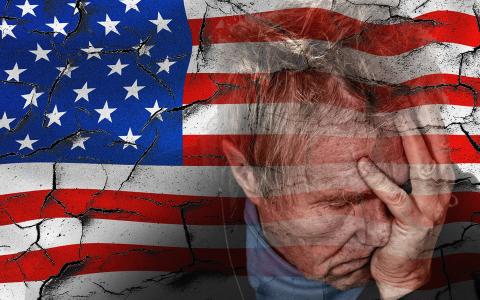
(Yahoo!Finance) - Donald Trump spent his 2024 campaign offering clear promises about tariffs on a nearly daily basis that were often downplayed by investors, perhaps because of the sheer size and scope of what he pledged to do.
As president, he has shown the markets and everyone this week that he was serious all along. His actions — if maintained — mark a fulfillment of some of his most oft-repeated campaign trail promises almost down to the letter.
In 2024, the then-candidate promised to levy duties of 10% to 20% on US trading partners and 60% on China. He also said at one point, "I don't need Congress ... I'll have the right to impose them myself."
This week, Trump signed an order that will increase the overall tariffs on Chinese goods to 54% (with some sector-specific tariffs already in place pushing duties for some goods well above 60%).
The president is also imposing a tariff floor of 10% on most of the rest of the world, with many countries facing far higher duties.
And he did it unilaterally over objections from even some members of his own party in Congress.
When asked by reporters Thursday afternoon about the declining stock market, the president responded with some surprise that markets were surprised.
"I said this would exactly be the way it is," he said, likening his move this week to "when a patient gets operated on."
Yet the surprise in markets was very evident. Stocks plunged Thursday as investors struggled to digest historic new duties that will push US tariffs to their highest levels in more than 100 years if they go forward as planned next week on some 185 countries.
The baseline tariff rate of 10% on all countries is set to go into effect on April 5, and the additional duties are scheduled to follow on April 9.
Trump this week made good on a pledge to go after another campaign trail target: automobiles. New 25% across-the-board tariffs on foreign-made cars are now in place.
This is not the first time Trump has defied predictions he wouldn't carry out certain policies. In 2016 Trump made a series of promises during his first presidential campaign and then largely followed through on them in 2017 and 2018 once he was in office.
A 'reordering of global trade'
One frequently mentioned reason for downplaying the effects of Trump's tariff promises during the 2024 campaign was that they were a negotiating tactic that could end up resulting in lower duties.
That could still happen — and Trump's team has said he is happy to get on the phone with anyone — but the announcement this week appears to open few avenues for negotiations to quickly lower rates.
After all, it was built on a formula derived from trade deficits and sets a minimum of 10% duties on 185 countries.
Some in Trump's orbit have told markets directly to settle in for long tariffs.
"I don't think there's any chance ... that President Trump's going to back off his tariffs," Commerce Secretary Howard Lutnick said on Thursday on CNN. "This is the reordering of global trade, right? That's what's going to happen."
Trump similarly talked during the campaign that his goal with tariffs would be to use duties to create a "ring around the country," and his action this week was a clear effort to make that happen. Almost no trading partner is spared from reciprocal duties, including an uninhabited Antarctic island.
Trump has also long said — on the campaign trail and elsewhere — that he likes tariffs because they help him pay for his other priorities and that he is less concerned about stock market fallout this time around.
"Some people are saying don't panic about all of this because, ultimately, the impacts are going to be so negative that they're going to have to change course," Veronique de Rugy, a senior research fellow with the Mercatus Center, said in an interview.
"I don't know about that."
She describes the president as "very religious about this," noting that Trump has a decades-long history of expressing his views.
Trump and his aides have also long talked about not only their tariff principles but also the legal maneuvers they could use to achieve their ends.
This week, Trump moved by invoking a 1977 law called the International Emergency Economic Powers Act, which allows him to move quickly and have this week's duties in place within days.
It was a novel legal option that Trump's aides publicly discussed as early as 2023.
"There will be complaints," Trump noted Wednesday, but "every prediction our opponents have made for 30 years have been wrong."
Ben Werschkul · Washington Correspondent



